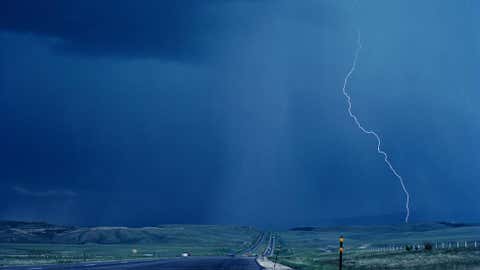
Do your joints hurt when a storm's coming? You have the change in barometric pressure to thank — though your joints aren't the only part of your body affected by the weather.
In fact, the weather's impact on your body and the natural world is so varied, there's a whole scientific study devoted to it: biometeorology. It's a small, but diverse field of atmospheric scientists who study how — and why — the weather impacts animals, plants and humans. From changing symptoms of existing diseases, contributing to new conditions and prompting temporary physiological changes inside your body, the weather's effect on your health is far-reaching.
(MORE: How Climate Change Already Affects Your Health)
But figuring out what exactly specific weather events do to the body is an imprecise science that's still developing, particularly when it comes to pain and emotional health, Grady Dixon, Ph.D., an associate professor in the department of geosciences at Mississippi State University, said in an interview with Weather.com.
"When weather changes, it's not often just one variable that changes," he said. "Is a change in temperature that's affecting a person well-being? Or is it the change in wind or cloud cover? It's hard to figure out which change is affecting humans, and because we're largely relying on human perceptions, trying to quantify how these changes affect humans is another challenge."
As climate change continues to impact human health, Dixon said he believes this study will become more important. Dixon studies climate, weather and emotional health and suicide and said that his discipline is moving closer to a space where scientists believe they will be able to predict some human behavior based on weather patterns.
Some things, however, we know are impacted by the weather — and why. One of the biggest? Blood pressure. As changing pressure systems change your blood pressure, a host of health consequences can follow, Jennifer Vanos, an assistant professor in the department of geosciences at Texas Tech, said in an interview with Weather.com.
Read on to find out more.
Blood pressure

When atmospheric pressure decreases, your blood pressure drops, biometeorologist Jennifer Vanos, P.h.D., said in an interview with weather.com. Low temps cause your blood vessels to narrow, meaning on the whole, blood pressure is lower in the summer.
Suicide
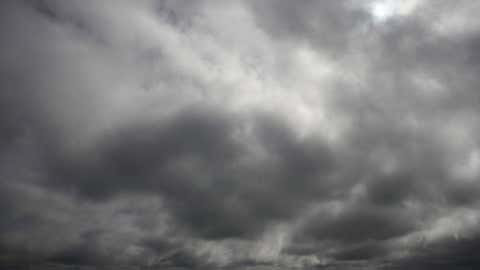
Self-harm has a season, according to biometeorologist Grady Dixon, P.h.D., who studies the weather and emotional health. Suicides spike in the late spring and early summer while overall, sour moods are more likely on cold, cloudy days.
Asthma and allergies

Changing seasons and hot weather can exacerbate asthma and allergy symptoms, with the growing season and air pollution paying a serious role. The fix? Be prepared with your allergy meds before spring weather arrives.
Joint pain
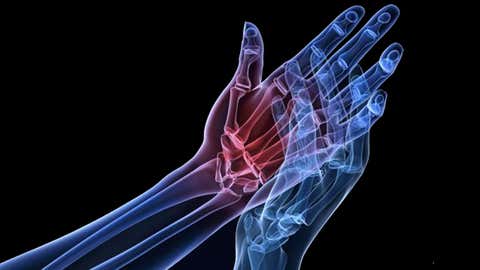
Sudden changes in barometric pressure, such as the switch that occurs right before a storm, can trigger joint pain. Cold weather can also cause painful changes in joint fluid thickness, some research has found.
Headache and pressure
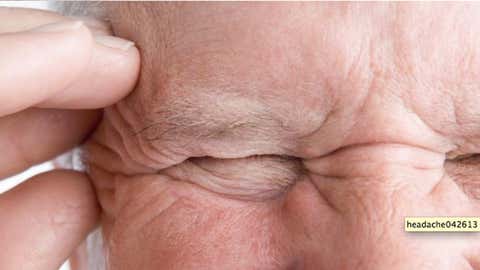
Barometric pressure can be a headache for some, though the reason is unclear. It might affect the pressure in the brain or the way the brain blocks pain, or it might be evolutionary, as it keeps humans in tune with their environment.
Headache and the seasons

As the days get longer, the additional exposure to bright light often triggers migraines. Pollen can also trigger headache for people with allergies.
Blood-sugar changes and diabetes

Any front is associated with low pressure, so during cold fronts, blood viscosity, or thickness, increases, Vanos said. “Diabetics will have more trouble controlling their blood sugar during cold fronts,” she said.
Fat
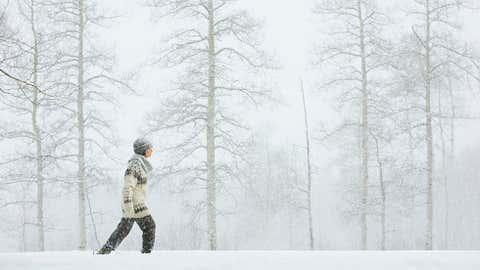
When you’re out in the cold, your body’s “good” brown fat activates, which burns calories (the other type of fat, white fat, does not contribute to a calorie burn). Exercising when it’s hot doesn’t burn more calories, however.
Heart attack

Each 1.8 degree Fahrenheit the temperature drops is associated with around 200 additional heart attacks nationwide, according to a study in BMJ. Higher blood pressure, an increased risk of blood clots and challenging activities like shoveling show contribute to the risk.
COPD and other lung diseases

Hot, humid weather can make breathing difficult, particularly for people with preexisting lung conditions. Air pollution, which is worse when it’s hot, also plays a role.
Cold and flu

Many people swear they contract the common cold when the weather changes, Vanos said. Although it’s not entirely clear why, experts believe it’s because rapid temperature swings weaken your immune system. The cold virus also transmits better in cold air.
ADHD

People with ADHD are more likely to develop seasonal affective disorder, some studies have found. Plus, sunny regions are less likely to have a high number of ADHD patients
Sinus pressure

When barometric pressure, or the weight of the air pressing down on the surface of the earth, changes, many people feel it acutely in their sinuses.
MORE ON WEATHER.COM: Today's Top Video



